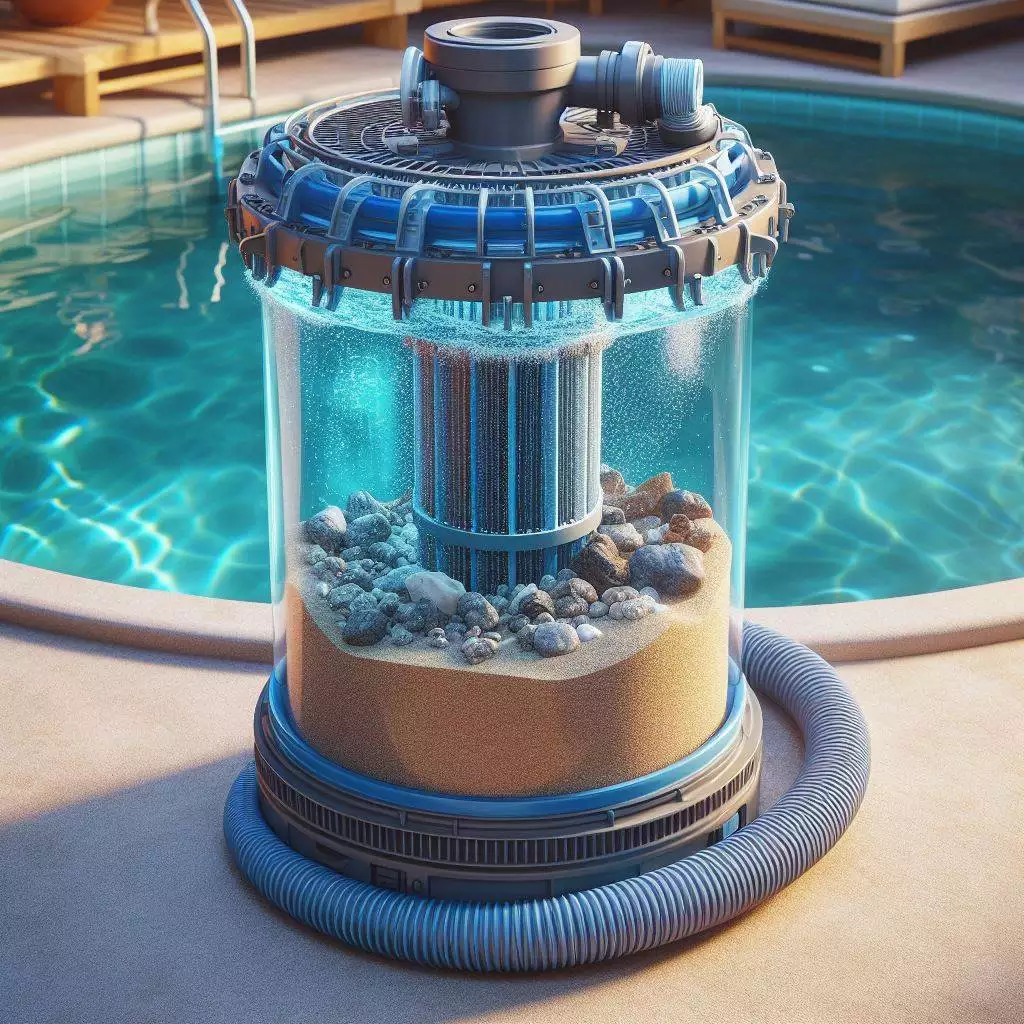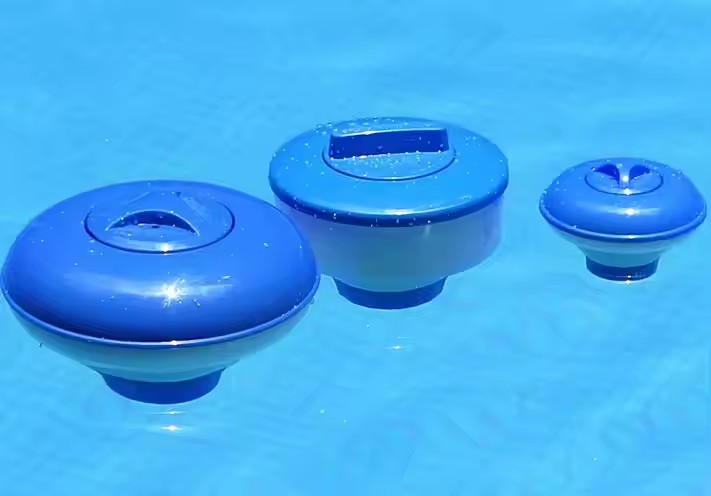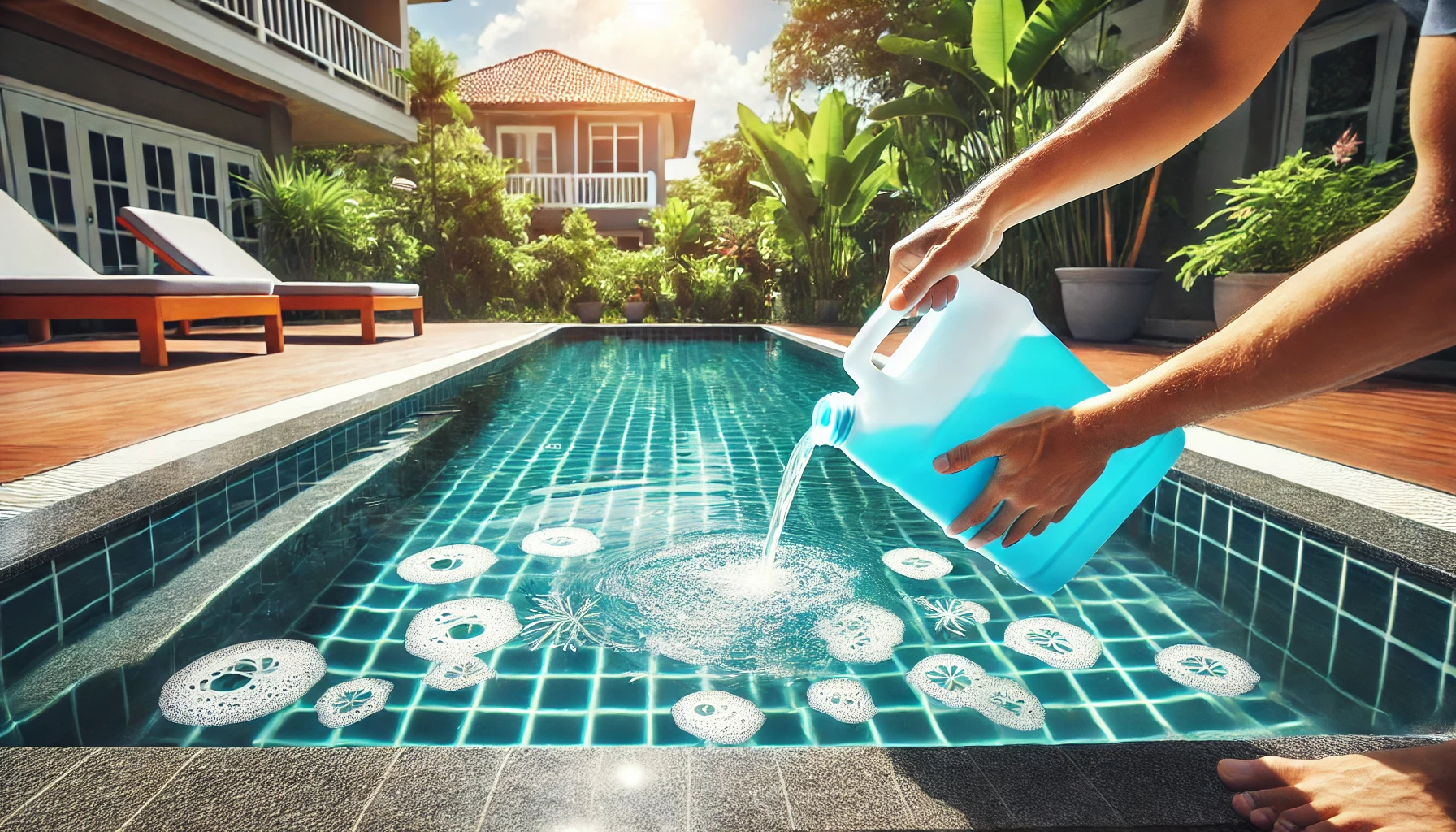Maintaining a pristine swimming pool can be both satisfying and demanding. One of the critical elements in ensuring your pool remains clean is choosing the right filtration system. Among the various options available, sand filters are a popular choice. But is a sand filter right for your pool? Let’s explore the features and benefits of sand filters to help you decide if they are the best fit for your pool maintenance needs.

What Is a Sand Filter?
A sand filter is a type of pool filtration system that uses sand as the primary medium for removing contaminants from the water. It comprises a large tank filled with specially graded filter sand. As pool water flows through the sand, particles and impurities are trapped, allowing only clean water to return to the pool. This method is favored for its simplicity and effectiveness.
Benefits of Sand Filters
1. Low Maintenance Requirements
One of the most appealing aspects of sand filters is their low maintenance needs. Unlike other filtration systems that might require frequent cleaning or complex upkeep, sand filters are relatively easy to manage. The sand within the filter needs to be replaced every 3 to 5 years, depending on water conditions and usage. Regular backwashing—the process of flushing out accumulated debris—is typically necessary only once a week or as required. This straightforward maintenance routine saves time and effort for pool owners.
2. Cost-Effectiveness
Sand filters offer a cost-effective solution for pool filtration. The initial investment in a sand filter is usually lower compared to other types of filtration systems, such as cartridge or diatomaceous earth (DE) filters. Additionally, the long lifespan of the filter sand reduces long-term costs, as you won’t need to replace the sand frequently. This balance of affordability and efficiency makes sand filters a popular choice for those looking to optimize their pool maintenance budget.
3. Reliable Filtration
Despite their simplicity, sand filters provide reliable filtration. They effectively remove debris and particles as small as 20 to 30 microns from the pool water. While not as fine as some other filtration methods, this level of filtration is generally adequate for maintaining clear and clean pool water. The ability of sand filters to handle regular pool debris makes them a dependable option for many pool owners.
4. Durability
Sand filters are designed with durability in mind. The tanks and components are built to endure the demands of regular pool use and environmental exposure. This robust construction ensures that sand filters can provide years of effective service with proper care. The durability of sand filters contributes to their long-term value and reliability.
Considerations for Using a Sand Filter
1. Filtration Efficiency
While sand filters are effective for general pool cleaning, they may not capture the smallest particles as thoroughly as other filtration systems like DE filters. If your pool frequently deals with fine debris or specific water quality issues, you might need to evaluate whether a sand filter meets your specific needs. For pools with particular filtration demands, exploring other options or additional filtration methods could be beneficial.
2. Space and Installation
Sand filters require a significant amount of space for installation. The filter tank is large and needs to be positioned in an accessible location to facilitate maintenance and backwashing. Make sure you have sufficient space around your pool area to accommodate the sand filter and allow for its proper installation. Proper placement is crucial for ensuring the filter operates effectively and efficiently.
3. Pool Size and Usage
The size of your pool and its usage frequency can impact the suitability of a sand filter. Sand filters are versatile and can handle various pool sizes, but for very large pools or those with high usage, it’s important to ensure that the filter is appropriately sized. An adequately sized filter will ensure optimal performance and maintain clear water in your pool.
4. Water Chemistry
Maintaining proper water chemistry is essential for all filtration systems, including sand filters. Regular testing and balancing of the pool water help prevent problems such as algae growth or scaling that can affect filter performance. For a sand filter to work effectively, it’s important to monitor and adjust water chemistry regularly.
Maintaining Your Sand Filter
1. Regular Backwashing
Backwashing is a critical maintenance task for sand filters. It involves reversing the flow of water through the filter to flush out trapped debris. This procedure should be performed regularly, following the manufacturer’s guidelines, to ensure the filter continues to operate efficiently. Proper backwashing helps maintain optimal filtration performance.
2. Monitoring the Pressure Gauge
Most sand filters come with a pressure gauge that indicates the level of resistance within the filter. A higher pressure reading typically signals the need for backwashing. Regularly checking the pressure gauge helps you stay informed about the filter’s condition and ensures timely maintenance.
3. Sand Replacement
Over time, the filter sand in a sand filter may become less effective at trapping debris. Replacing the sand every 3 to 5 years ensures continued filtration efficiency. When replacing the sand, use the type and amount recommended by the manufacturer to maintain optimal performance.
4. Inspecting for Leaks
Regular inspections of the sand filter system are important to detect any signs of leaks or damage. Addressing leaks promptly prevents further issues and maintains the filter’s efficiency.
Conclusion
A sand filter can be an excellent choice for many pool owners due to its low maintenance, cost-effectiveness, and reliable filtration. Its simplicity in operation and durable construction make it a practical option for maintaining clear and clean pool water. However, it’s essential to consider factors such as filtration efficiency, space requirements, and pool size before making your decision. By evaluating these aspects, you can determine if a sand filter is the right fit for your pool and ensure a well-maintained and enjoyable swimming environment.


